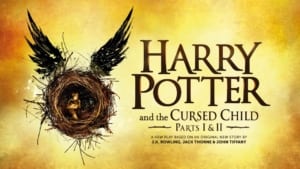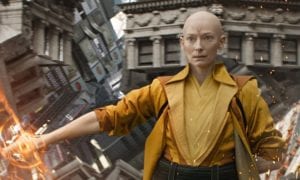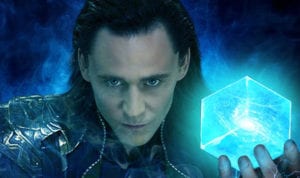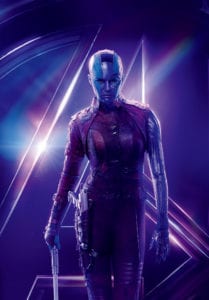Time travel. Let’s face it, it usually leads to plotholes. This is article is about all the plotholes related to time-travel in Endgame; when you’re making the blockbuster of the decade (at least), you should be able to avoid something as basic as…not really understanding your your essential plot device works.
Warning: this article contains massive spoilers for Avengers: Endgame!
How to do time-travel?
This is just a quick overview for those who are not wholly familiar, so if this is an old hat for you, feel free to skip this section.
There are effectively three way to do time-travel. The first is one fixed timeline. Think Harry Potter and the Prisoner of Azkaban. You cannot actually change anything in the past, because you are in the future and everything has already happened. But you can still time travel and there can be a point to it, because maybe it happened because you time-traveled.
Dumbledore sent Harry and Hermione back in time because he already knew they had saved Buckbeak and realized they could save Sirius too. Harry and Hermione didn’t know it, they thought Buckbeak had been executed, but later we realize the axe was just Macnair being frustrated because Buckbeak got away and swinging it in anger. It is later best exemplified by Harry realizing the father-like figure he saw by the lake was actually him and saving his own and Sirius’ life.
This is actually my favourite way to do time travel, first because there is no danger of paradoxes – you cannot actually change anything – but also because it is, in my opinion, the most interesting. Finding way to fit the time traveler into the known facts about the past brings unique challenges we don’t see in films too often.
Another, probably the most popular way to do this, is one changeable timeline. This is the one that has the least scientific support, because no theories of time can figure out a way this could actually work, but it is best for wish-fulfillment because it delivers straight up changes of past mistakes. As an example of this, think Harry Potter and the Cursed Child…or, you know, don’t. Nobody wants to do that. Think Back to the Future instead.

At any rate, how this works is pretty straightforward: by going to the past, you can change it, and you can potentially create paradoxes. This is the one where you have to worry about killing your own father before you are born and therefore erasing yourself from existence. Amy change you make, however small, can lead to a chain reaction that will change the circumstances of your original present and thus causing you to not time-travel. Imagine the popular idea of going back in time to kill Hitler before WWII starts. By killing him so early, you would eliminate any need for your original self to go and kill Hitler, so then you wouldn’t time-travel, but then that would lead to Hitler staying alive, but then you would time-travel…and so on and so on.
I also call this the ‘mass-murdering time travel’, because by any changes you make, you can influence the futures of the people around you, therefore killing their selves from the original version of your present. This is easiest to demonstrate with children: you can cause some of them not to be born (and this is actually explored in the Cursed Child, though not brought to its logical conclusion). But philosophically, it is the same with adults. If someone went in time to 2008 and convinced me not to go study what I study, I would be a completely different person now, with different political opinions and view of the world (and not writing for The Fandomentals). Effectively, by this going back in time, they would have killed my present self. They would have created a new one, but it wouldn’t be me. I, as I am now, would no longer exist.
Any major change in time you made – like, say, killing Hitler – would lead to thousands, millions of lives being erased like this.
So, in other words, this version is kiiiinda problematic.

The last approach is the alternate universes one. Effectively, you create alternate universes by every choice you make. You decide to go right, somewhere there is an alternate universe where everything is the same but you went left. So what you do when you travel to the past to change it is effectively just switching to a different universe, where different choices happened. You can change stuff to your heart’s content without any fear of paradoxes.
I call this the pointless time travel, because if your goal is to save lives, don’t bother. You never actually save any. You just switch to a timeline where fewer people were killed. In this view of time travel, when you really think about this, it only ever makes sense to travel for your personal comfort: your family was killed in your timeline? Find one where you were killed instead and they are alive and go there, tada, everyone is happy. Think Rick and Morty. But you didn’t actually save anyone by doing this, and in the pointless time travel view, you never do, because it is not possible. Your choices only matter for your personal comfort regarding the world you want to live in.
So what about Endgame?
Lots of time travel media actually randomly combines the last two methods, because they are unwilling to accept the horrifying implications of either. Endgame sort of did that too, though to their credit they at least provided some explanation for that.
There is no mention of the “one fixed timeline” approach in Endgame (except that Bruce’s explanation kind of sounds like that), but let me just devote a moment to outlining how fun it could have been. You would have the Avengers realizing that this was how time-travel worked and then a light goes off in Steve’s head and he says: “I remember fighting myself during the invasion! I thought it was Loki in disguise, but it must have actually been me!” and other moments like that, moments that made them give new context to things they actually remember happened.
Imagine, for example, if the Hulk who saved Tony wasn’t “I just met you” Hulk, but “we’ve been friends for years”. So many options! Now of course, this works best when this is foreshadowed in advance, but I do think they could have made it work very interestingly and – and this is crucial – avoided all the plotholes that follow.
The actual official theory of time travel, as explained by the Ancient One in Endgame, is that there is one changeable timeline, except for when you mess with the infinity stones, which are powerful enough that any change in their status brings about a new, separate timeline.

Now, let’s look at the story in light of this.
Problem nr. 1: Loki
At the end of the film, Steve Rogers goes back in time to put the stones where they took them from, precisely to avoid any splitting of timelines.
But there is one problem. Their original attempt to get the Tesseract didn’t work, and so they got it back from the 70s. So Steve would have gone back to the 70s and put it back. Let me not get into the question of why the hell Steve went alone and how would he manage it on his own. It makes no sense, but is not directly related to time travel. So, moving on. This means the Tesseract was available in 2012, Avengers 1 happened the way it happened… And then, because of the first attempt to get the Tesseract by Scott and Tony, Loki got the Tesseract and disappeared. Steve going back to the 70s changes nothing about this.
We could assume he tries to fix this without it being spelled out on screen, but even then, it is kind of difficult to imagine that Steve single-handedly manages to deal with that mess without anyone recognizing him and causing a huge amount of trouble, what with Hydra there and all. It’s not something that can just be hand-waved away by “sure, he did it, no problem.”
So Loki most likely gets the Tesseract and escapes. That mean he’s not on Asgard during Thor 2, which means Thor has no way to get off the planet, which probably means the Dark Elves destroy the universe because kudos to Jane, she is awesome, but I still don’t quite thing she’d have managed to save the universe without Thor distracting them.

Or we have to postulate some convoluted scenario where Loki escapes but then for some mysterious reason decides to go back to Asgard. Perhaps he could pull off the impersonation of Odin a bit sooner? It’s fun to speculate and write fan fiction about. But unless they plan to make the upcoming Loki series about this, it’s a massive plothole. It is too complicated to just get it over with with a simple assumption. Though it is true, this film is generally so fond of off-screen development it looks like they took advice from Game of Thrones writers, so it would go with the style, I suppose. But more on that in another article.
Connected to this Loki problem—because it also originates in the 2012 time intervention—is the Hydra issue. Namely, Rumlow now thinks 2012 captain America is Hydra. Either they will soon find out he is not and that they are busted, cuing massive changes to the storyline, or they will include him in their plans, cuing other massive changes to the storyline.
Which brings us to:
Problem nr. 2: Captain America
This is the one I have seen most people notice. Chiefly because it is such a spit in the face of everything we have been told until now. There is a lot of emphasis on making no changes beyond taking the stones. Thor cannot save his mother because “she’s already dead, actually dead”, as Rocket says. But Steve Rogers can say “fuck the rules” because we have to have our Certified Heterosexual Ending™.
I am angry about it too, for all sorts of reasons, but let’s look at the time travel aspect of it.
Steve goes back in the past to put the Infinity Stones back where the Avengers took them from, to prevent timeline splitting. He presumably replaced all the Stones and then he just stayed in the past. Probably jumped to something like 1950 to have that life with Peggy. That’s nice.
So, for one, we have a case of that mass murder right here. The Peggy that existed in the 21st century and Steve talks to? The one her niece Sharon knew? She is definitely erased, or killed, really, to give it the full impact it deserves. As is her husband, and as are their children, who were never born in this new version of reality. Probably a bunch of other people too, people whose lives were changed as a result of this domino effect. Peggy’s husband might have married someone else, for example, and then that person’s self from 21st century was erased too, and so on and so on. Does Steve or the Russos care? No! Steve needs his reward woman!
Then there are all these questions. How did no one recognize Steve? He was a really famous figure in the 50s. Or did they? If they did, that’s another massive change to the timeline. A change that would have influenced everything. Likely the Avengers wouldn’t have formed the way they formed and all that. Another implied mass slaughter.

And what does Steve do about the Hydra he knows infiltrated SHIELD? Can we really imagine him doing nothing? In the organization his freakin’ wife works in? But if he does something, then that’s another thousands of lives changed and people erased. Hell, it means Howard and Maria Stark don’t die, leading to massive changes in Tony Stark’s life. Iron Man 1 most likely does not happen. Obadiah Stane wouldn’t have enough of control over Stark Industries for that. Therefore, no Iron Man as a superhero. Which, apart from Tony Stark as we know him being killed by this, means Manhattan is nuked in Avengers 1 and all the Avengers are dead.
And Bucky, of course. Does Steve leave Bucky with Hydra? Really? The man we were supposed to accept as a reason for throwing Tony under the bus in Civil War? I doubt it very strongly. But if he doesn’t, that’s more massive changes to the timeline. Winter Soldier happens differently. Civil War happens differently. Who knows if the Accords are ever created… Everything is changed, paradoxes abound, and more scores of people are erased.
I also very much wonder what happens to the Steve that’s in the ice. Do they just pull him out in 2012 and there are two Steves and everyone is fine with that? In that case, where was this other Steve at the end of Endgame? Or do they leave him in the ice? In that case, the paradox leads to Steve not actually being alive to time travel at all, and…
Yeah. It is one huge mess.
Problem nr. 3: Nebula
Nebula kills her past self, which means her present self should not exist. That’s it. She makes the textbook mistake everyone warns you about, and she doesn’t even make it accidentally.

If they at least tried to do something with it, it could have been a beautiful dramatic sacrifice. To save Gamora, Nebula would kill her past self, knowing it will erase he present self as well. It would have been a paradox. Nebula2 kills Nebula1 which leads to Nebula2 being erased which leads to Nebula1 not being killed by her which leads to Nebula2 existing again…. It’s the Hitler-killing problem from my introduction all over again. But at least the issue of it would have been reflected by the narrative somehow, and some character potential would have been gained from the nonsense.
Instead, it was just completely ignored.
Problem nr. 3: Thanos
Thanos from 2014 time-travels to 2023, where he is killed, with his whole army.
That means there is no more Thanos in 2014, and in any of the years that follow.
That means there is no Infinity War.
The end.
Addendum 1:
I have seen people argue that Bruce should have simply made the last five years not happen, undone the snap, instead of returning the people to 2023. Well, that is one horrifying implication the film-makers did manage to catch, actually.
In the film, it is exemplified by Tony’s daughter, who would be killed if this happened. But is not only her; it is, on the more obvious level, every child born in the last five years, and on the less obvious level, every person left alive in the universe.
Because, again. if I returned to my self from 5 years ago, it would no longer be me, and the idea is actually horrifying. 2014 me was horrible and I want nothing to do with her. It’s certainly not me me. Yes, I would we willing to make the sacrifice if it brought half the universe back to life, obviously, but trust me, just bringing everyone back to 5 years later is a much better option, even with all the logistical issues it would cause.
Addendum 2:
When discussing this with people, I have been told that perhaps I should regard the film as using the “alternate universes” method even if they explicitly deny it on screen. It would solve the Thanos, Loki and Nebula issue. It would, however, make Steve’s appearance at the end impossible, because if he created an alternate universe by his time travel, he wouldn’t have aged into the one the rest of the Avengers were in.
So no. There is actually no conceivable way to make this work.
But hey, the middle of the film is fun!

